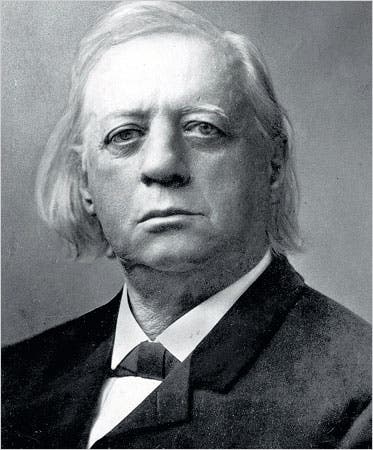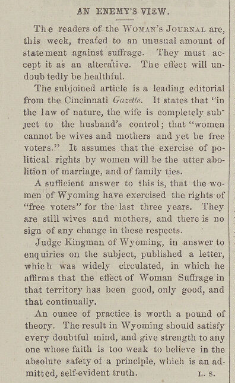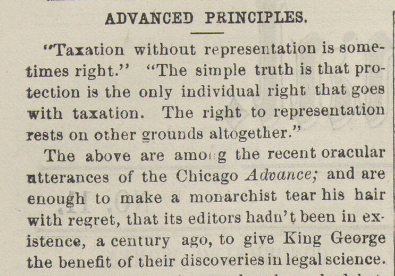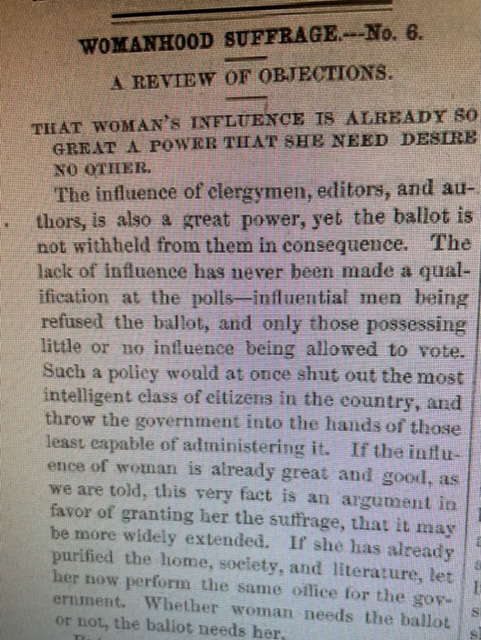“All men are commanded to repent. How significant that no women are thus commanded!”
Lavinia Goodell, May 1872
In early 1872, newspapers reported the scandalous story that Sarah Smiley, a Quaker woman, had been allowed to preach in a Brooklyn Presbyterian church. Lavinia Goodell, who had moved from Brooklyn to Janesville, Wisconsin the previous year, followed the story with interest and wrote a series of articles expressing her support that women should be allowed in the ministry – and in every other profession. Read more here.
Professor S.C. Bartlett, D.D., who was then a professor at the Chicago Theological Seminary and later became the president of Dartmouth College, wrote lengthy opinion pieces for the Advance, a weekly publication of the Congregational Church, arguing that St. Paul himself forbade women from preaching and how dare Ms. Smiley or anyone else think otherwise.
Bartlett’s articles caught the attention of Henry Ward Beecher, the famous pastor whose Brooklyn church Lavinia had sometimes attended.

Beecher was a woman’s rights advocate and countered Bartlett’s arguments. This led to a spirited back and forth between the two men.
Continue reading →











